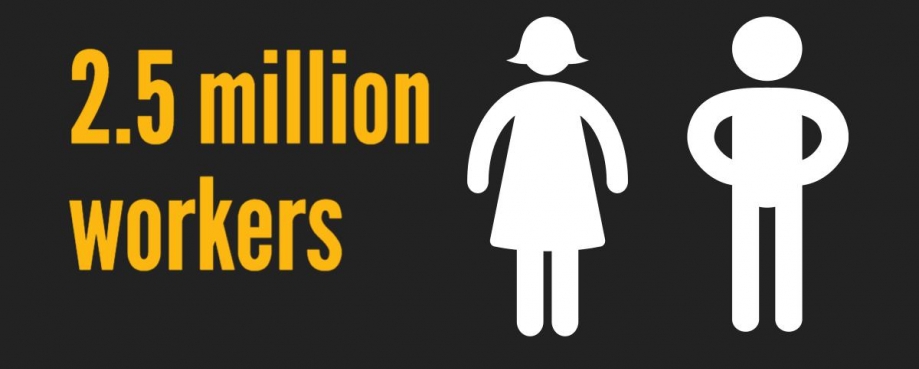
We have been reviewing the results of our DFID funded work over the past five years. We share below just what has been achieved. What is even more heartening is that many of the results have been brought about in a way that is likely to be sustained and resilient to future changes.
Take a look at our list of achievements including better workplaces, stronger mechanisms for workers to voice concerns and greater collaboration between our members.
Beyond the statistics – working for change that lasts
Statistics and infographics don't give the whole picture. Behind the numbers is the story of what gives these changes a better chance of being sustained. We have been able to:
- Facilitate strong, local multi-stakeholder collaborations: For example, the Rajasthan State Forum on Natural Stone which we helped to facilitate and co-ordinate. As our intervention in Rajasthan draws to an end, the deep local roots of this forum and the involvement of diverse stakeholders will ensure that the formalised space can effectively be used to discuss and agree what’s best for both business and workers into the future.
- Influence government legislation to protect workers’ wages and freedoms: For example, the combined efforts of our company, trade union and NGO members and our global allies in the garment sector succeeded in influencing the policies of both the Cambodian and Myanmar governments with the result that a total of 353,000 garment workers in both countries will now enjoy better wages.We also provided a platform for our tripartite members’ voices to help persuade the UK government to include a transparency in supply chains clause into its Modern Slavery Act so that all large companies now have to report on their efforts to identify modern slavery in their supply chains.
- Help change core business practices among corporate members: We’ve recorded at least 250 changes in core business practices through our members’ annual reports, but suspect there are many more – including numerous changes across our supply chain programmes in how companies work with their suppliers to address problems in working conditions. For example, brands and their supplies and producers in both the Moroccan strawberry and Leicester garment sector report that as a result of involvement in ETI initiatives they now have better communication with each other which makes them better able to address issues impacting on workers. Improved HR and recruitment practices are also becoming embedded. Member reports also reveal ETI’s members are increasingly integrating ethical trade into company culture and business practices, improving their transparency and identifying problems in the supply chain.
These fundamental changes are likely to result in sustainable improvements in global supply chains to the benefit of workers. They have enabled suppliers to share problems – and identified ways to resolve them. And that means suppliers are now better able to respond openly, rapidly and transparently to workers’ complaints.
Implementing ETI's new strategy
These are encouraging results to take us into the next five years as we implement our new strategy.
By 2020 we want to see:
- The 10 million workers in our company members’ global supply chains enjoying improved protection of the rights described in the Base Code.
- Greater respect of these rights by those they work for.
- And, better access to remedy when their rights are abused.
To that end, we have improved and expanded the scope of our monitoring, evaluation and learning framework to enable us to track and measure our progress towards our strategic aims for the next five years and beyond.
This will help us to share many more engaging stories, lessons and examples of good practice from our work and that of our members and allies.
NB: 'Active participations' are defined as active particpations by an organisation in any of our joint initiatives – therefore one organisation which has been involved in twelve initiatives would be counted twelve times rather than one.

